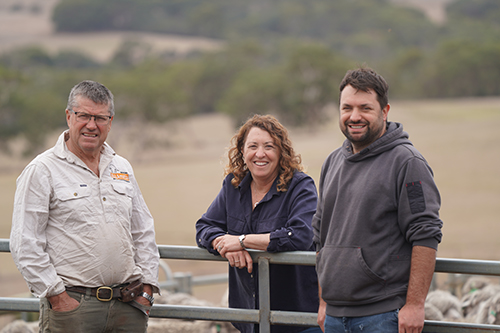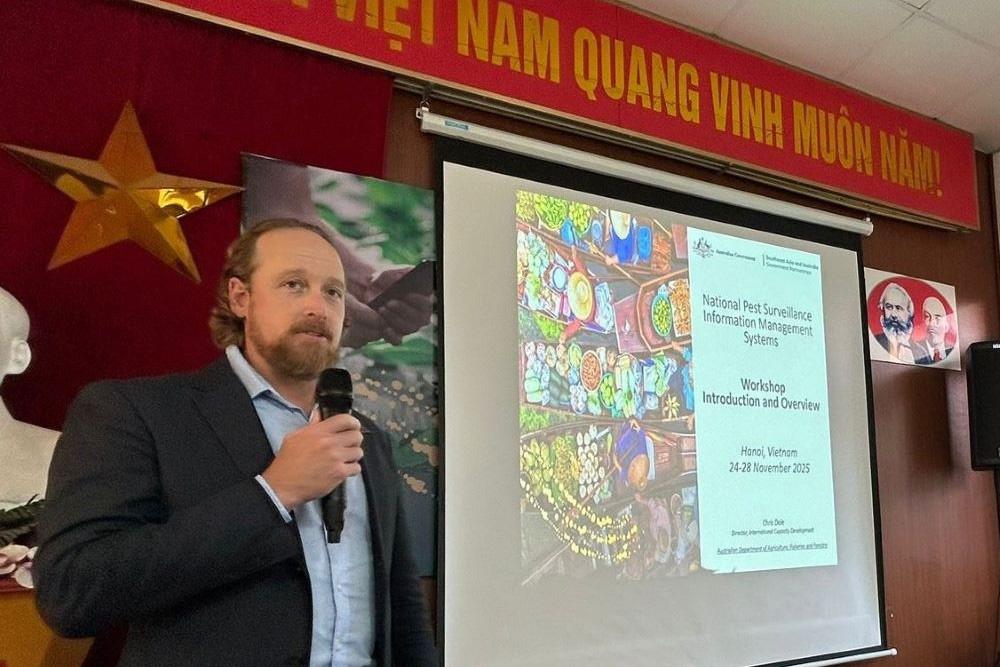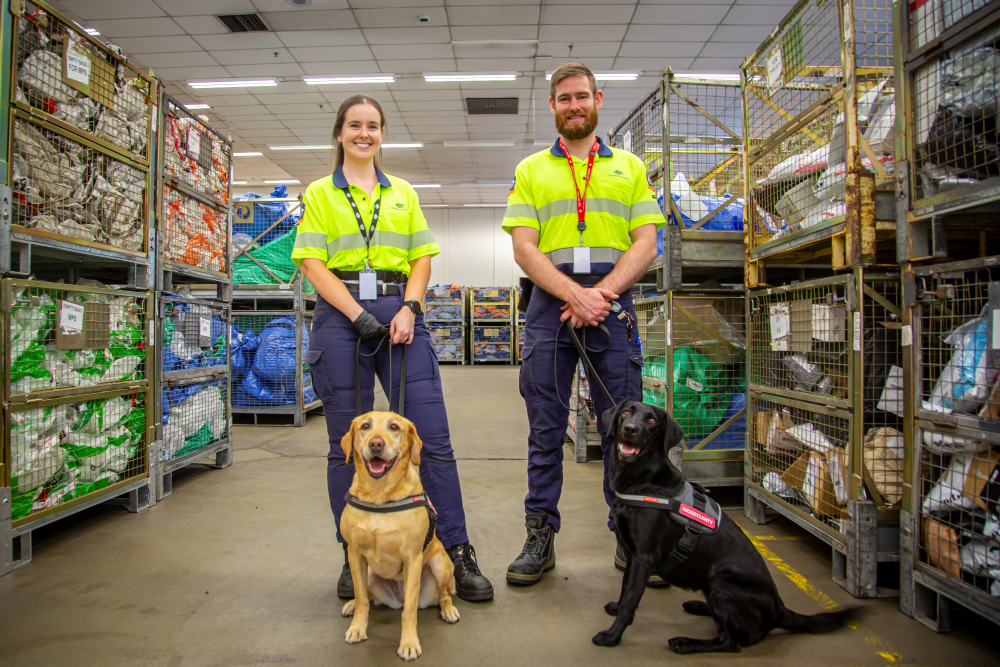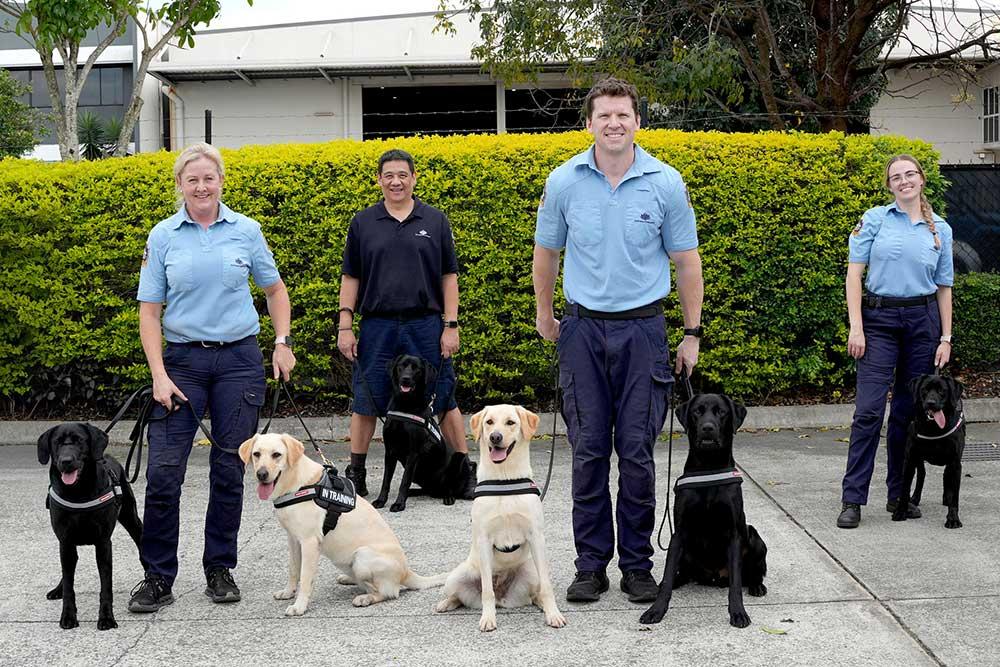Ella Matta Pastoral
Ella Matta Pastoral is a sheep operation on Kangaroo Island. Jamie, Andrew (Aphid) and Tracie Heinrich run the family farm with their team. They are leaders in farm biosecurity and have put extensive measures in place to protect their property and those around them.
Ella Matta Pastoral enforces strict on-farm biosecurity protocols in line with their biosecurity plan. As part of that plan, visitors undergo a structured induction process and receive an informative handout when required. This manages risks from visitors, vehicles, and equipment that might carry diseases, pests and weeds.
To reduce disease risk, they have kept a closed flock since 1999, and new genetics are only obtained through artificial insemination. They have a variety of boundary and landcare fencing to control stock and wildlife, which they continuously monitor.
Heinrich-owned vehicles are preferred on their property. If outside vehicles have to enter, they must first undergo a thorough cleaning. All visitors must complete a biosecurity induction, wear provided boots, or authorised thoroughly cleaned boots, and follow access rules. A vehicle and equipment wash-down area and boot-cleaning stations are available at visitor entrances. Biosecurity signage is clearly displayed around key areas of the farm.
At Ella Matta Pastoral’s annual sale of White Suffolk, Poll Merino and Composite Rams, the biosecurity plan is put into action. Visitors enter through an approved entrance and clean their footwear at the cleaning station. The Ella Matta Pastoral team checks shoes before handing out wristbands. This clearly indicates that compliance with cleaning processes has been met. Once processed, visitors can register and enter the sale area. Ella Matta Pastoral welcomes 80 to 120 visitors each year who follow the biosecurity measures, so it’s vital that the process runs smoothly.
The farm maintains high animal welfare standards and is certified under the Responsible Wool Standard, which recognises best farming practices worldwide and prohibits mulesing. Under the standard:
- wool must come from farms that progressively and responsibly manage their land, business and stock
- sheep must be treated ethically according to the Five Freedoms (freedom from hunger and thirst, discomfort, pain, injury or disease, the ability to express normal behaviour, and freedom from fear and distress).
Ella Matta Pastoral is certified under the Livestock Production Assurance program. This national farm assurance initiative supports food safety, animal welfare and biosecurity in Australian livestock industries. Certification provides verified evidence of livestock history and on-farm practices when animals are transferred through the supply chain.
The Heinrichs are prominent biosecurity advocates and are leaders in the Australian sheep industry. They are actively involved in various agricultural boards and organisations, and encourage biosecurity through educational outreach, advocacy and proactive on-farm measures.
Through their commitment to best-practice on-farm biosecurity, Ella Matta Pastoral has set a high benchmark for excellence, protecting not only their own business, but contributing to the resilience and sustainability of Australia’s broader agricultural landscape.

Watch a video about their work
Introduction
This is the accessible text transcript of the 2025 Australian Biosecurity Awards winner video featuring Jamie Heinrich.
Transcript
Ella Matta Pastoral is a sheep operation here on Kangaroo Island.
We’re a White Suffolk, maternal composite and Poll Merino stud, and we also run a Poll Merino self-replacing flock with the surplus over a White Suffolk.
My name is Jamie Heinrich, and I’ve taken over the management here of our family property. I still work very closely with my parents, Andrew and Tracie Heinrich.
We’ve had a closed flock here at Ella Matta since 1999.
The reason for this is just to minimise any chance of bringing disease onto our property.
The main reason we do biosecurity is not just for the health of our own animals, but because we have started selling over 500 rams a year and pushing genetics as hard as we can, we really want to make sure that our clients are not only getting the best genetics possible, but the healthiest animals they can possibly.
And we don’t allow anyone onto our property until they follow our biosecurity protocol.
This is making sure they ring us before they enter the property.
If they’re coming into our yards or on to the farm, changing into our supplied boots.
A few of our common visitors, like our agents, they actually have their own boots that they keep here so they can wear boots that they’re most comfortable in.
So we use a range of contractors. We have industry people come out to do trials and things like that, and if any of them come on our property, ideally they’d use our own vehicle, but if they have to use their own vehicle, we wash them down in our wash down bay before they enter.
The only time we’ve had to bring in hay, was actually straw, was after the fires, when we locked up a lot of animals and we made sure we only fed that straw into our drought lot area so then we could monitor it for any weeds coming up.
Our boundary fences are very strong on our property and we maintain them very closely.
We don’t want to risk any chance of outside sheep getting onto our property and bringing any diseases, so we are constantly monitoring them and making sure that they are bulletproof.
In some parts of our farm we have double boundary fences and we also have vermin proof fences in other areas.
It’s cool to actually be recognised for all the effort we do on our farm, in our biosecurity program.
Photos




